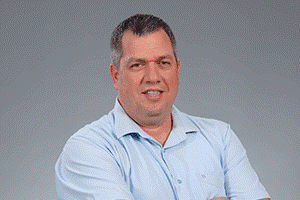September 20, 2024
@
11:00 AM
–
12:00 PM

Medical education has traditionally followed the apprenticeship model, where trainees learn directly under the guidance of experienced practitioners. This approach requires close supervision and often results in highly subjective and non-standardized feedback. Although there have been efforts over the years to develop more objective assessment tools, these tools tend to be time-consuming and can still be influenced by subjective interpretations. The recent integration of motion sensors with medical simulators has introduced a more objective method of feedback, though this is usually confined to certain aspects of motion efficiency.
In this presentation, I will explore how advancements in computer vision can be harnessed to provide more comprehensive assessments and feedback on surgical skills, with a focus on both surgeons and anesthesiologists. I will also demonstrate how the introduction of cameras into the operating room opens up new possibilities for analyzing surgical workflows.
Bio: Shlomi Laufer is an Asst. Prof. at the Faculty of Data and Decision Sciences (formerly Industrial Engineering and Management) in the Technion – Israel Institute of Technology. He graduated (summa cum laude) from the Technion with a bachelor degree in Electrical Engineering (2004), Worked at Mobileye for a couple of years and then completed his PhD (2012) in Bio-Engineering at the Hebrew University working with Prof. Boris Rubinsky. He later had a joint appointment in Electrical Engineering and the Department of Surgery at the University of Wisconsin-Madison, working with Prof. Barry Van-Veen (EE) and Carla Pugh (Surgery). His research revolved around the use of sensor technology for the assessment of clinical skill.
He joined the Technion in 2018, where he established the Sensor-analytics for ClinicAL Performance Lab (SCALPEL). His current work involves combining video and sensor data with computer vision and deep learning to automatically identify and assess clinical activities. He has installed camera systems in several operating rooms at Rambam Health Care Campus, where he analyzes the work of cardiac surgeons and anesthesiologists.